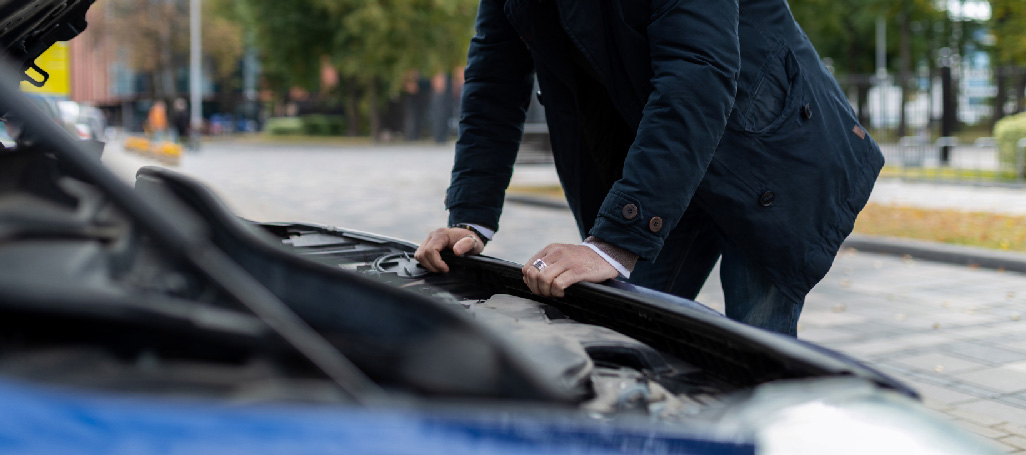What are the most common car faults and problems?
What are the most common car faults and problems? And how much will garage trips set you back? Read this blog to find out all you need to know.

Car faults and problems
Let's be honest – car faults can arise when you least expect them to, and they're never a welcomed surprise.
Whether it starts losing power or making a concerning noise, there are many signs that might indicate your vehicle is experiencing some sort of issue. But what are the most common car faults you can expect to face at some point? And how much will the trip to the garage set you back?
To answer your questions, we've put together a list of popular vehicle issues that affect motorists all over the country and offer simple tips on how to prevent—where possible—these costly hiccups.
What are the most common car problems?
Every car is different. Based on your driving style and maintenance routine, your motor is likely to encounter a unique range of issues throughout its lifetime.
That said, there are a number of issues that mechanics tend to deal with more regularly. For example, some of the most common faults include:
1. Flat or faulty battery 🔋
Flat batteries are often caused by a lack of use or too many short journeys that don't provide enough power. Poor electrical connections, old age, or faults with the battery itself can contribute to this as well. One of the main signs that your battery may be struggling is that the car doesn't start when turning the key or takes longer than usual. Likewise, if the red battery warning light appears on your dashboard, it's time to take a trip to the garage.
2. Alternator faults ❌
The alternator plays a crucial role in keeping your motor ticking as it helps generate power for your car's electric. Without an alternator, your engine can't charge up the battery. So, if the alternator stops working, your battery will quickly go flat.
Unfortunately, there is no real way to maintain and keep your alternator in tip-top condition. However, there are some telling signs that suggest something is wrong, such as the ignition warning light switching on, slow wipers, and dimmed headlights.
3. Electrical issues ⚡
A car's electrical system controls everything, from the stereo to the headlights, through a network of circuits. Indicators that you might be experiencing electrical problems include blown fuses and faulty wires. In this situation, it's always best to get your vehicle checked to avoid more serious problems down the line.
4. Damaged tyres 🚗
There are many reasons that can lead to damaged tyres and wheels, such as hitting a kerb or deep pothole, valve failure, and old age. In the event of a collision, your tyre and rim may even separate. With so many potential causes, damaged tyres are a very common car fault that needs to be fixed as soon as possible. This is because it can affect your motor’s grip on the road and compromise your safety.
What are common van and motorbike faults?
Just like cars and any other vehicle, vans and motorbikes are prone to unwanted issues from time to time.
Again, it's difficult to measure what the most popular van and motorbike faults are, but there are some recurring problems that you may want to be mindful of.
In the case of vans, cambelt and electronic control unit (ECU) issues are pretty standard.
Cambelts ensure that the crankshaft and camshaft are synchronised, allowing them to rotate together at the same time. Failure of cambelts can be dangerous and lead to engine damage and negatively affect the cylinder head. So, should any issue arise, it's vital to get it looked at immediately.
The ECU is essentially the brain of a van, keeping all its components operating as they should through computer programming. This includes specific functions such as sensors, suspensions, brakes, and transmissions. There are many reasons that can impact your van's ECU, but if you suspect something is not quite right, make sure to get it checked as soon as possible.
As for motorbikes, common faults include fuel tank rust, fork oil leaks, and old tyres. Fuel tank rust, for instance, tends to occur in older bikes, especially if you've left it parked up for a while – perhaps during the cold winter months. Topping up your tank and checking its fuel levels regularly can prevent this undesirable issue.
Motorbike forks are complicated parts filled with viscous oil that helps manage and handle the weight of the front end. Leaks or wrong oil can lead to friction and damage to your bike. Bear in mind that if there's an issue with your forks, you're likely to feel every bump on the road, so you should be able to spot the problem quite easily.
Costs associated with fixing faults
How much you'll have to pay to get your vehicle fixed will depend on the garage and on how severe the problem is. But roughly speaking, there are specific faults that are more expensive than others to sort.
One of the priciest repairs is a catalytic converter replacement, which can cost you – on average – more than £2,000 as they are made from costly metals. Catalytic converters are built to clean the polluting emissions produced by the exhaust into less harmful gases. With faulty catalytic converters, exhaust pipes tend to give off thicker, dark smoke, and you might experience other issues such as reduced acceleration and sluggish performance.
Clutches are also pretty expensive to fix – but given their vital role in automatic cars, it's easy to see why. Clutches are crucial to change gears, but you might notice there's something wrong if the left pedal feels spongy or vibrates. The pedal may also emit a squeaking or rumbling noise.
The best way to keep your clutch in check is to have your car regularly serviced. Otherwise, you're more likely to end up with a faulty clutch and a pricey garage bill, which tends to average around £1,200.
As mentioned, faulty alternators are a common car problem – and sadly, there isn't much you can do to prevent it. Since they are used to operate so many systems within our car, alternators are quite expensive to fix or replace, and can set you back well over £1,000.
Tips to avoid vehicle faults
While it isn't always possible to prevent car and vehicle issues, there are some steps you can take to keep your motor as healthy as can be.
Here are a few tips you may want to keep in mind:
- drive sensibly – it goes without saying that one of the best ways to maintain your car in good condition is by driving responsibly. Driving with caution and avoiding speeding will help reduce wear and tear while favouring the wellbeing of your tyres and brake pads.
- Change the oil – changing the oil on a regular basis can help keep your engine cool and lubricated, saving you precious money in the long run. Your owner's manual is likely to have specific mileage recommendations of when to change your oil, so make sure to flick through it.
- Check your lights and tyres – having your lights and tyres in tip-top condition is crucial to staying safe on the road at all times. Before setting off, it's always wise to check whether your lights are functioning correctly and if your tyres are adequately inflated. If ignored, it can cause further damage to your vehicle, put you at risk of on-the-spot fines, and ultimately compromise your safety en route.
- Keep your vehicle clean – yes, giving your motor a good old clean can create a pleasant environment and prevent avoidable faults. In fact, dirt and grit can get into different moving parts, causing corrosion and accelerating wear and tear. So, to ensure your vehicle is always at its best, don't forget to give it a wash and scrub from time to time.
Motor faults are never a welcomed surprise, as they can cause nuisance and easily set you back a few hundred pounds. But with a few simple tricks under your belt, you can do all you can to keep your car, van, or motorbike as healthy as can be.
If you are experiencing issues with your vehicle and aren't sure what to do, don't hesitate to get in touch. Our friendly team at First Response Finance is always happy to help and – where possible – answer any doubts or questions you may have.
Don’t just focus on maintenance - learn how to protect your vehicle from theft with practical security tips, found in this blog. 👈
Information includes references to:
RAC - Most expensive car repairs: the things you don't want to go wrong for your motor
You may also like...
Rosie | Nov 2025





